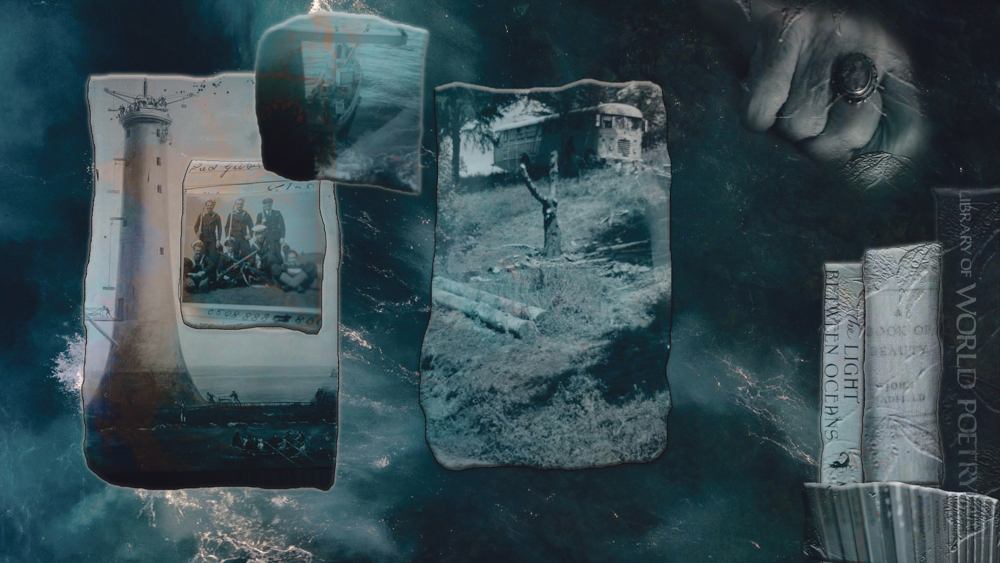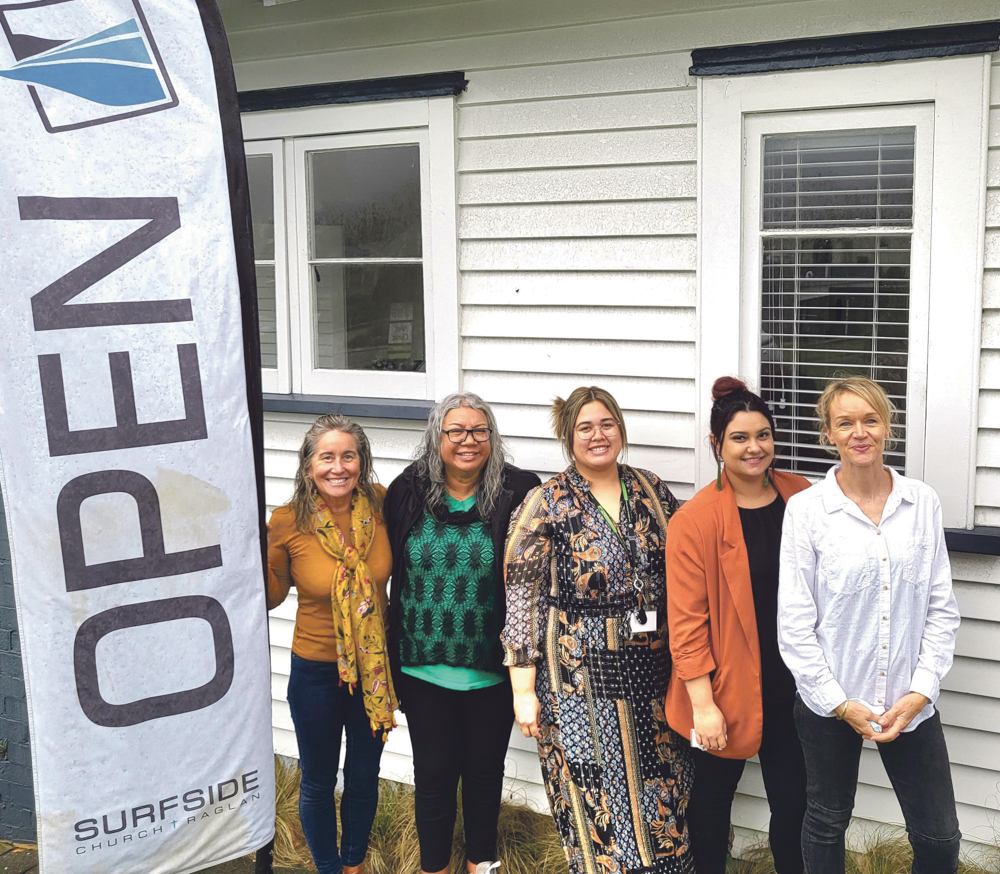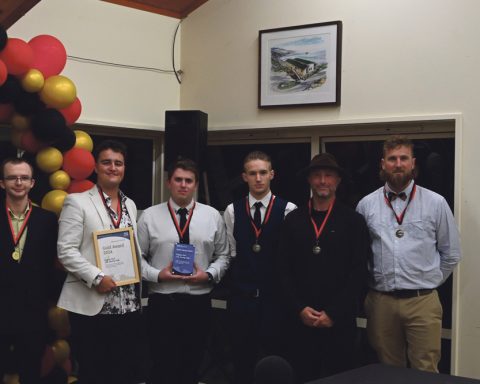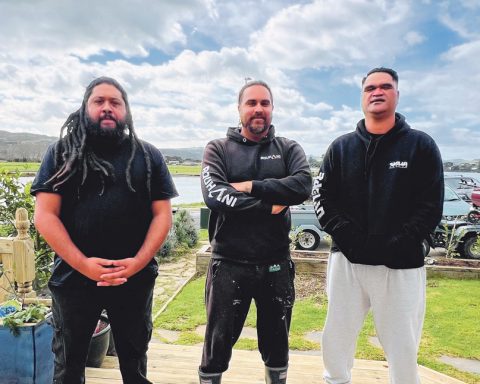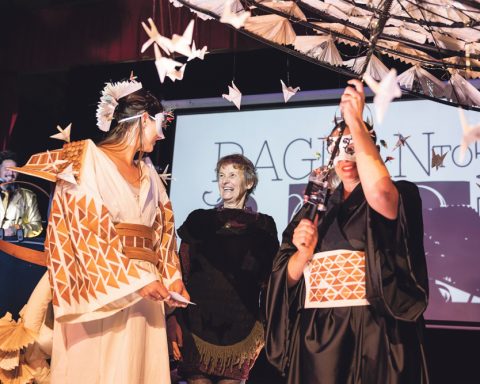Elisabeth Denis wants to tell the stories of the residents at Raglan Rest Home. She worked there a few years back and remembers how the residents had so much to tell when she had an extra minute of grace to sit still beside them and listen. Elisabeth wants to show up for someone every month and bring awareness to the community about caring for our elderly and appreciating their memories and wisdom.
Moving forward the series will feature in the Chronicle publications but here Elisabeth introduces us to the first chapter where we meet Joyce
When I entered room 23, the first thing I saw was the two bookshelves. An amalgamation of tired pages: an encyclopedia of world poetry, a thick collection of Evergreen British history magazines, an old book about beauty and a handful of manuscripts connected by the correlating subject of the sea. All pages and covers showed signs of decades of use and the smell undeniably highlighted the same observation. My inspection stopped when I found what I was hoping for: the black and yellow book, staining my eyes for the second time. 2019 was the year Joyce turned 90 and the year I locked eyes with this specific book in her room. I was helping her to dress up, or to shower. I can’t remember exactly which task was executed but I was this thin-skinned health care assistant, waiting for her to finish some personal business.
When I say thin-skinned, it has nothing to do with my physical body. In fact, I had extra loving handles back then due to the irresistible sweets constantly offered in the staff room. My skin was so slim and sensitive, the reality of old age would crawl under my peel in no time and I’d find myself being a puddle of water hiding in one of the numerous bathrooms.
Dementia waking a man in the middle of the night, asking about his wife who’s long gone. A mouth refusing to eat because Death would come faster that way. A 100 year old lady asking me to cuddle her until she fell asleep because loneliness was too heavy to bear alone, and because the darkness of night was everything but reassuring. I would lay with her on her single bed, pink duvet all the way up to our eyes in the middle of winter, and I’d be wetting her short white hair salty in silence.
Is this what it means to be old? Calling old names with only echoes bouncing back? Running in circles trying to remember blurry faces and unforgettable dates, wishing time would accelerate to be done with it? Or decelerate to dig up the things half remembered?
I couldn’t bear the realness of aging on a daily basis, so I quit.
3 years later, I go back to the building. The same chef is still cooking with his good heart, and the mechanical order of things didn’t change: lunch is still served right after 12 and a tea trolley slides from room to room 3 times a day. Joyce is still here and the black and yellow book is still peacefully napping on her shelf. The Moth: a bunch of true short stories told by around the world writers.
Joyce couldn’t remember me. But she remembered The Moth. She recalled her son gifting her the book when he came to visit in 2019 from England.
The looking away through the window, the occasional hand hovering over her face, and the excessive apologies showed her embarrassment in not remembering those places of emotional significance. A string of photos pinned on a cork board beside her bed helped us investigate the order of her stories and untangle her timeline. She had coloured pictures of a blue bus and black and white pictures of her wedding, lighthouses and boats. We figured the bus was the tail of her tales.
Joyce got married to Teddy. After his service in the Navy in England, he eventually got a job as a lighthouse keeper in New Zealand. He had to nurture lighthouses to ensure boats would find land again the same way moths are guided to the light. Whilst he daily recorded weather readings, maintained the mechanical equipment and bathed rotation mechanisms in mercury, Joyce homeschooled their 2 boys. During 12 years, they lived at 4 different stations in the country, and spent exactly 3 years at each station. The house was always a few meters away from the lighthouse, close enough to guard it. Despite working with mercury, she said the lighthouse effect didn’t get to Teddy’s head, he never turned out to be a mad hatter.
When they lived on Stephens Island, a boat drove them to the edge of the island and they were asked to step in a box that could fit 4 people including their luggage. A crane would lift the box up in the air all the way to the island. The cliffs all around the island made it impossible to get on it any other way. At times, the lifting mechanism wasn’t reliable; it would often leave them hanging between sea and land like a broken claw machine at the arcade. Eventually, it would stagger, they could breathe again, the box would land on the island, open up and make them feel on their very own little planet.
Joyce’s favorite station was their very first one: Puysegur Point, at the bottom of the South Island. She said it was a world of its own: the smell of the rough sea, foggy quiet afternoons where she would write and read all sorts, anything but romance novels. She could not glance at the overly exaggerated love depicted on the covers, it made her wince. She always loved receiving and sending hand-written letters, and let me tell you, she has a well-trained hand which achieves perfectly shaped cursive handwriting.
After their lighthouse keeping saga, the children were old enough to get by on their own and the couple eventually bought Lizzy, a blue Bedford 1956, and lived in Northland for about 16 years with cats and dogs on board. But that’s another story. I left the room catching her ocean stained eyes with a gentle smile across my face. If only Joyce knew that I had received in my mailbox, on the very same morning, ‘To the Lighthouse’ by Virginia Woolf.
BY Elisabeth Denis
